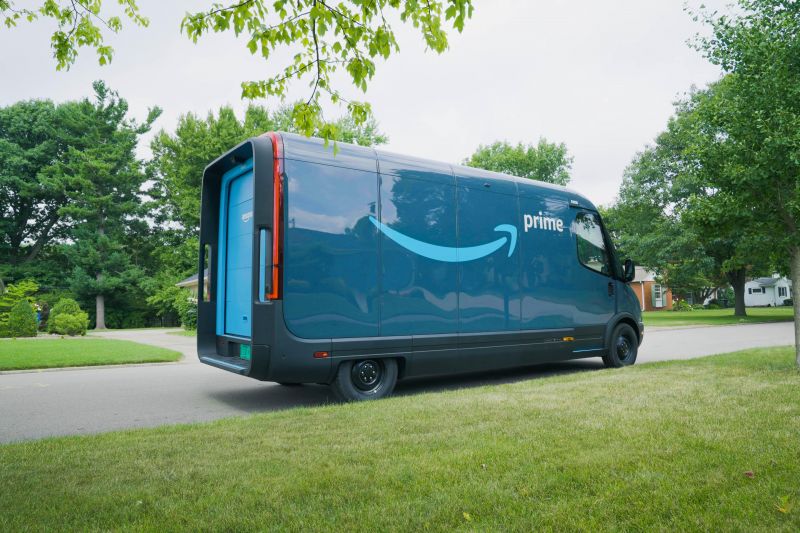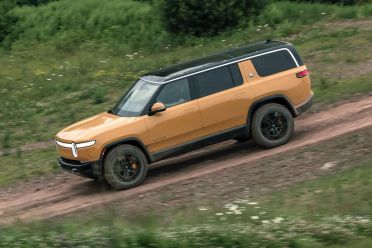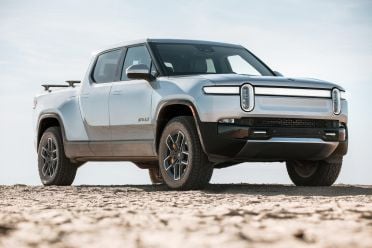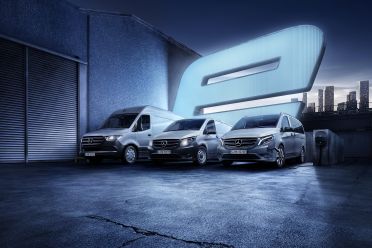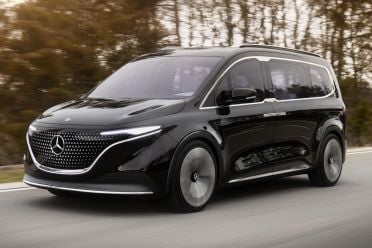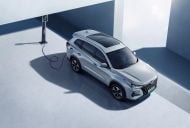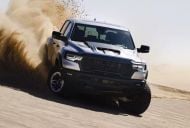It’s a coming together of the young and old in the automotive world, with grandee Mercedes-Benz and young whipper snapper Rivian joining forces to produce large vans in Europe, probably, from 2025.
Overnight the two automakers said they will form a joint venture to build and manage a factory in Central or Eastern Europe.
While the joint venture plant will be all new, it will “[leverage] an existing Mercedes‑Benz site in Central/Eastern Europe.”
At the outset the aim is to jointly produce a van based on the EV-only VAN.EA architecture being developed by Mercedes-Benz Vans, and a vehicle based on the second-generation of the Rivian Light Van (RLV) platform.
Given the wording of their joint statement it seems as though — at the moment — there will be no badge-engineered models, with the two automakers preferring to use their own platforms and designs.
Savings will come by sharing construction costs, and through “operations synergies”.
The two companies say they will explore “further options for increased synergies” from their joint venture.
According to Autocar, prior to today’s announcement Rivian was looking at a number of production sites in Europe, including a facility in the UK and VDL Nedcar, a contract manufacturer based out of a former Volvo/Mitsubishi factory in the Netherlands.
Rivian is currently in the throes of scaling up production of its R1T pickup truck, and R1S SUV. Like Tesla before it, the startup automaker has found it hard to fulfill its order book, an issue compounded by the on-going shortage of components in the wake of the COVID pandemic.
The company has also begun production of a customised version of its EDV 700 van, 100,000 of which have been ordered by Amazon. Other companies can reportedly order the EDV 700 from 2023. A smaller EDV 500 model is reportedly on the drawing board.
Meanwhile, Mercedes-Benz offers electric drivetrain options on the Sprinter and Vito/V-Class, and one will soon become available on the smaller Citan/T-Class.
Starting in 2025 the company will begin selling vehicles based on the EV-only VAN.EA architecture. According to the company, VAN.EA models will include a mid-size and large model, probably around the same size as today’s Vito and Sprinter.
In April this year both Amazon (18.1 per cent) and Ford (11.4 per cent) were major shareholders in Rivian, although since then Ford has sold off about 17 million of its 101 million shares.
Ford and Rivian had planned to build a Lincoln crossover on the same architecture as the Rivian R1S, but this was cancelled at the beginning of the COVID-19 pandemic.





